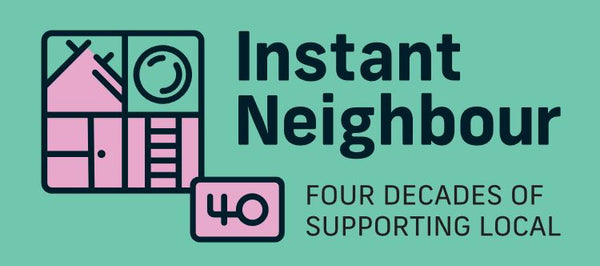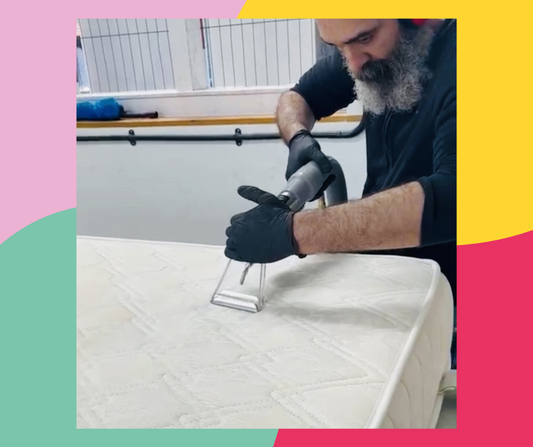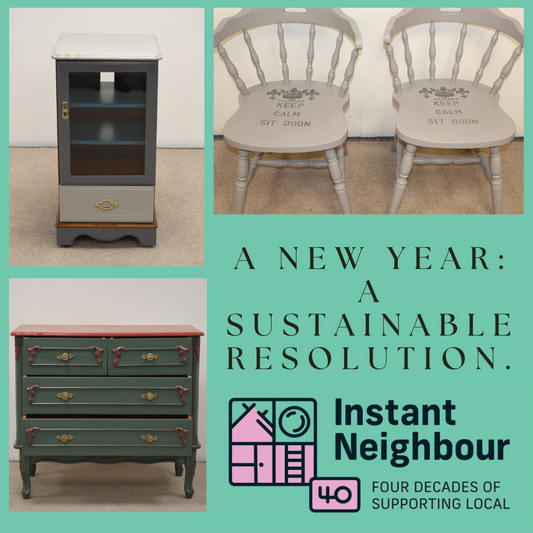‘Your donations not only help us support low-income families but also enable us to support Scotland’s vision for a circular economy’.
Written by Katharina Will of Instant Neighbour.
Scotland's commitment to the circular economy is both commendable and inspiring. We can see this by the Circular Economy Bill which has been introduced into Scottish parliament. By embracing the principles of sustainability and waste reduction, Scotland is not only mitigating the environmental impact of its activities but also setting an example for the rest of the world to follow. Scotland’s circular economy initiatives, such as ‘Circular Communities Scotland’, serve as a shining beacon of hope and progress as the global community strives to combat climate change and protect our planet.
The concept of reuse, in which items are given a second life rather than being discarded, has gained increasing importance in our modern world characterised by resource depletion and environmental concerns. In this context, the third sector, comprising non-profit organisations, charities, and community groups, plays a pivotal role in championing the cause of reuse. This is something we are very passionate about at Instant Neighbour.
Reuse is an eco-friendly practice that extends the lifecycle of products, reduces waste, and lessens the demand for new resources. The third sector, driven by social and environmental missions, is ideally positioned to champion and promote reuse initiatives. These organisations often operate second-hand stores and recycling programs that enable communities to engage in responsible consumption.
For example, Instant Neighbour allows individuals to access essential items at lower costs, and opportunities to purchase items to upcycle and furniture already upcycled and repurposed, ensuring that no one is left behind in the quest for sustainable living.
Upcycling plays a pivotal role in a circular economy by diverting items from landfills, extending their useful life, and reducing the need for new resources. It aligns perfectly with the core principles of the circular economy, emphasising the value of materials and products, promoting longevity, and minimising waste. By upcycling, we close the loop on consumption and production, nurturing a regenerative system that benefits both the environment and the economy.
Individuals have a crucial role to play in transitioning towards a circular economy. By making sustainable choices, reducing waste, and advocating for change, individuals can contribute to a more sustainable and resource-efficient future.
Here is how you can help:
Reduce and Reuse: The first step is to reduce overall consumption. Buy only what you need, and consider borrowing, renting, or sharing items with others rather than buying new ones. Reuse items whenever possible, repairing and refurbishing them to extend their lifespan.
Support Second-hand Markets: Purchase second-hand or vintage items from charity shops, online marketplaces, or car boot sales. By doing so, you support the reuse of goods and reduce the demand for new production.
Practice DIY and Repurposing: Develop DIY skills for repairing, upcycling, or repurposing items. This can include mending clothing, refinishing furniture, or turning old containers into plant pots. There are many online resources and communities that can help you get started.
Resources:
Upcycling Projects – Home Comforts by Instant Neighbour
Circular Communities Scotland - Circular Communities Scotland




